Posted on October 27, 2016
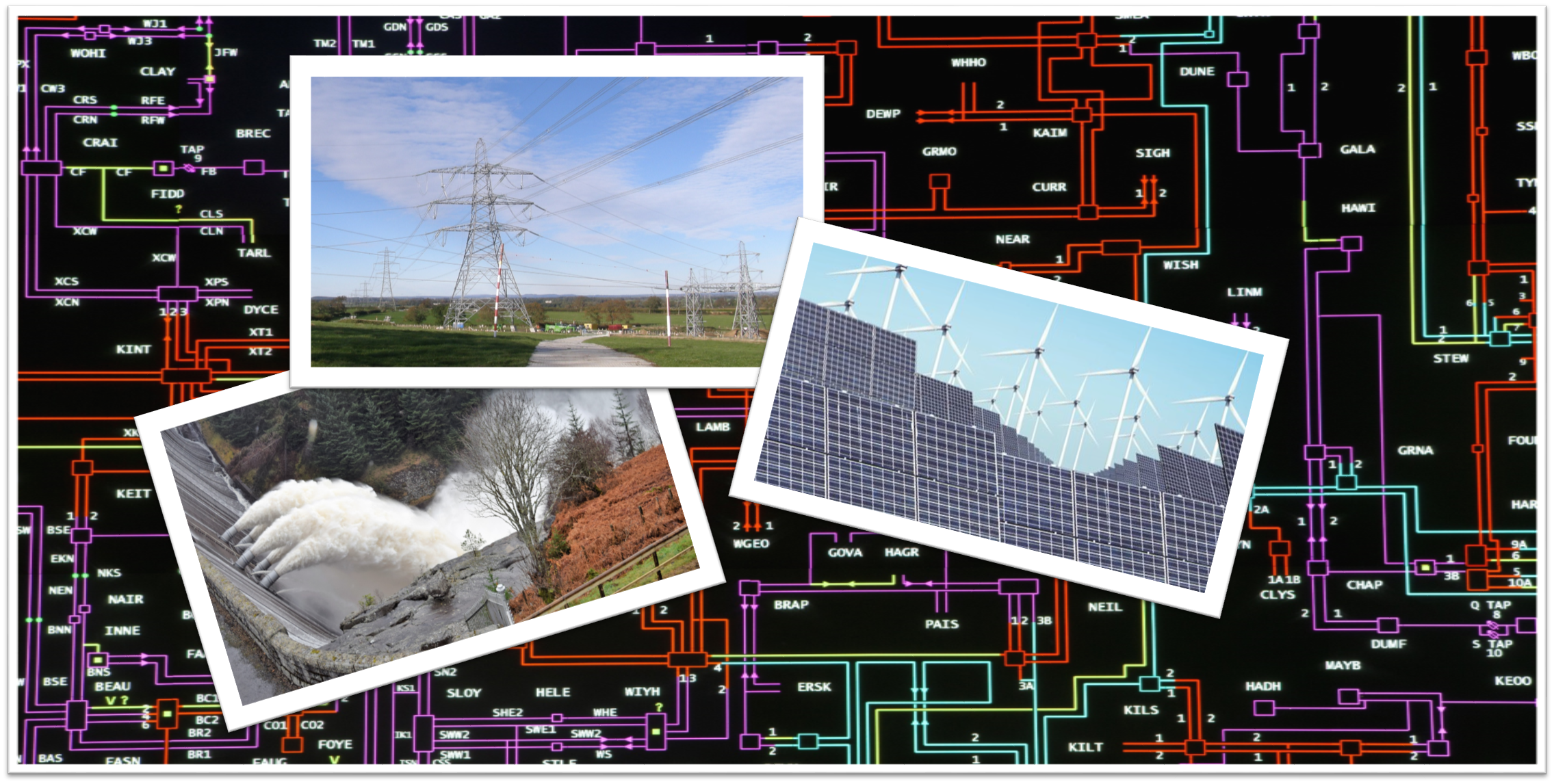
The modern electricity grid is one of the engineering marvels of the world. The key challenge facing this modern marvel is that generation must equal load, at all times and in all places on the grid. Scotland’s electricity system is challenged by two factors:
- A distribution gird that was built up over the years to serve a relatively small and dispersed population;
- A vast renewable energy resource that generates intermittent electricity, and could generate much more.
Together these two factors create a problem that prevents Scotland, and especially the Highlands and Islands, from realising its full energy potential.
Most electric loads are not very flexible with respect to when they turn on and off: for instance would you want to wait for your cuppa until the sun is shining? How about only watching the telly when the wind is blowing? Fortunately, there are some loads that can be flexible about when they use energy off the grid, and the production of algae is one of them. Algae need light to live, but they are inherently capable of growing and thriving with an intermittent source of light. And they produce a huge variety of valuable compounds, from biofuel or high-protein feed, to high value pigments and Omega -3 oils.
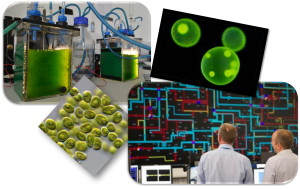
The ASLEE project aims to marry an understanding of:
- The value of flexible load on the grid with;
- The effects of the intermittent light supply on algae growth.
We aim to demonstrate that a flexible load can use Scotland’s intermittent generation to produce valuable products, and help solve the region’s renewable energy challenge. VCharge technology will be used to manage the intermittency of the energy being put into the algal photo-bioreactors and to monetise this flexibility on the Scottish grid. The company has been providing grid balancing services to grids in North America for five years, and has developed close relationships with National Grid and Scottish and Southern Energy Power Distribution (SSEPD) that will enable the project to develop novel and lucrative approaches to energy use.
Posted on October 27, 2016
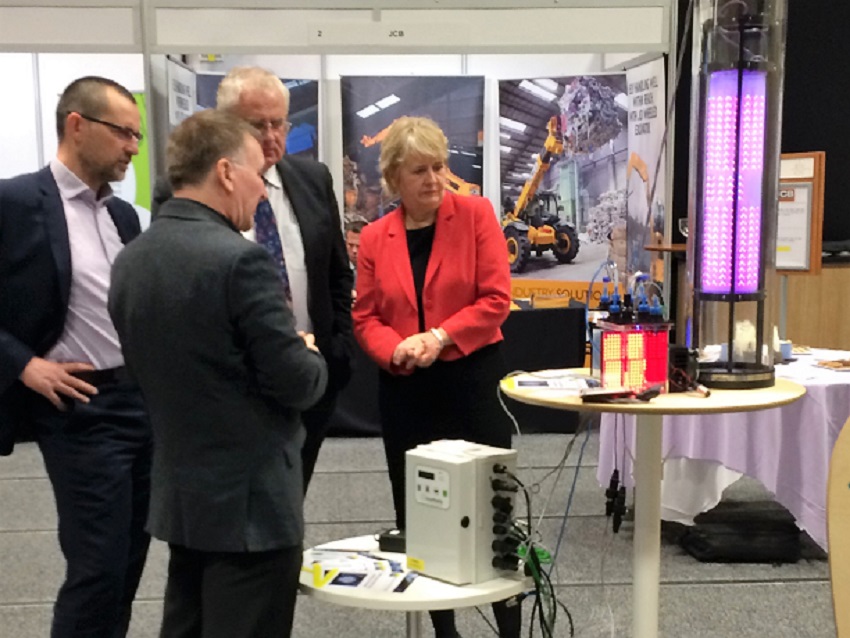
ASLEE partner representatives were delighted to be invited to exhibit at the Scottish Resources Conference 2016, in Edinburgh, hosted by Zero Waste Scotland. The conference provided an excellent opportunity to showcase the ASLEE project and to discuss the Scottish Government’s circular economy targets with world leading experts in sustainability and resource management.
A regional funding call, under the Circular Economy Investment Fund, was announced by Cabinet Secretary for Climate Change, Environment and Land Reform Roseanna Cunningham MSP. The enterprise funding is in place to encourage small or medium sized businesses (SMEs) in developing innovative ideas that demonstrate sustainability and waste reduction. Building from a successful pilot scheme, the new funding is aimed at accelerating a Circular Economy in Scotland.
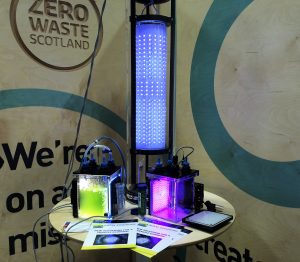
The ASLEE project is a perfect example of the circular economy as it uses resources that would otherwise be wasted (surplus renewable electricity, and potentially, waste nutrient streams and carbon dioxide gas), to create new products that enhance the value of existing industrial activities. Initially, the ASLEE project will use surplus electricity, from a Combined Heat and Power plant at Ardnamurchan, to grow micro-algae for use as aquaculture feeds. The micro-algal product will displace imported micro-algae whilst enabling the Ardnamurchan estate to overcome the problems of grid constraints and pave the way for further renewable energy developments in the future.
In addition to announcing the enterprise funding, Scottish Cabinet Minister Roseanna Cunningham took time out to chat to delegates, including ASLEE project lead partner Dr Douglas McKenzie and colleagues from Xanthella and ALIenergy.
http://www.zerowastescotland.org.uk/
Posted on October 24, 2016
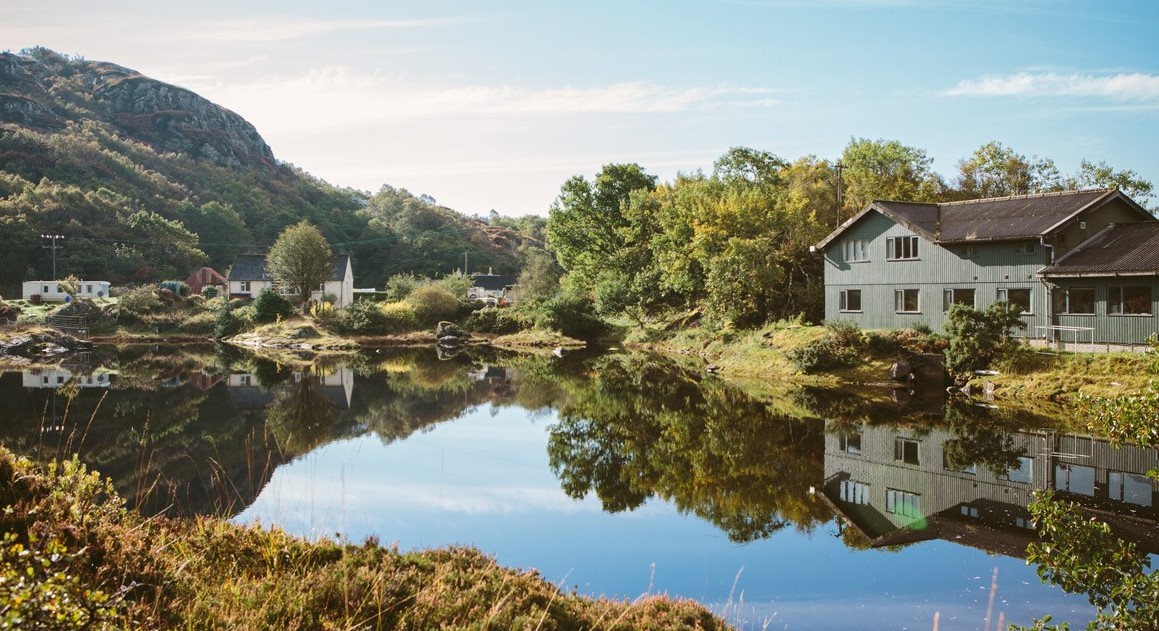
FAI Aquaculture Ardtoe Marine Research Facility is a long-established and internationally recognised facility providing both expertise on algal culturing and use of algae as feedstocks in aquaculture. Of particular relevance to the ASLEE project is the experience of largescale commercial culture of a wide range of microalgae species used within fish and shellfish hatcheries, employing a variety of culture systems.
Using the renewable energy generated locally, the ASLEE project aims to expand the algal culturing capabilities with cost-effective production of live algae. This would bring significant benefits both to the company and to the UK shellfish industry as a whole.
In addition, being based on the Ardnamurchan peninsula, the marine laboratory is ideally located to the ASLEE project demonstrator site to be built in 2017. The facility will be a potential end user of the microalgal products, both locally and more widely through its parent company, Benchmark Holdings, which has a number of other facilities that are significant users of algae.
http://www.faifarms.com/our-locations/scotland
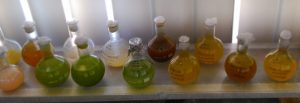
Posted on October 20, 2016
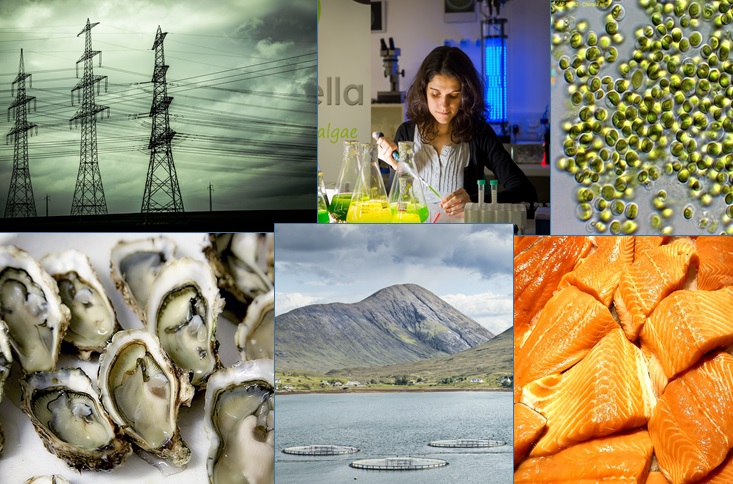
Hosted by the ASLEE project, ‘Empowering Rural Industries’ is a showcase event uniting the energy sector with innovative manufacturing and traditional rural commerce. The one day conference on March 20th 2017 will provide opportunities to engage with experts from energy suppliers, aquaculture, distilleries, government agencies and academic institutes. Sessions will highlight the integrated nature of the rural economy and how innovation can realise the potential energy resource to build sustainability, community resilience and contribute towards the circular economy.
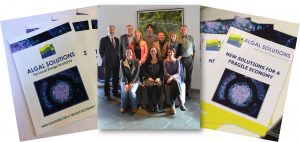
In the coming weeks looks out for news on how to register and join us for an engaging day of interactive presentations and networking opportunities!









